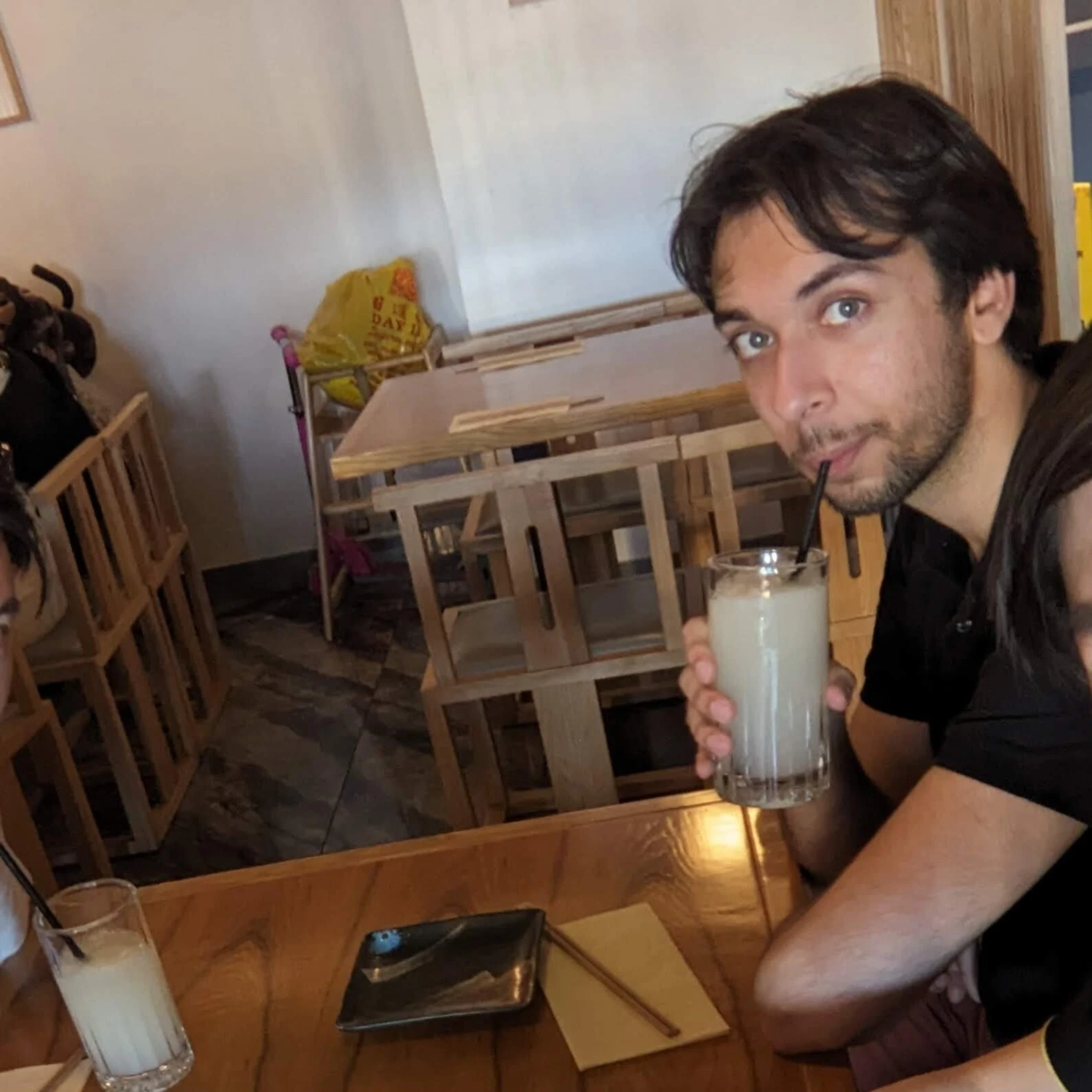- cross-posted to:
- [email protected]
- cross-posted to:
- [email protected]
Conservatism is a global plague of deception, oppression and death. It always has been.
Who downvoted this? Conservatism has always been an ideology that’s opposed to progress, democracy and freedom. It holds back society to preserve tradition and “family values” while promoting xenophobia, bigotry, and unquestioned submission to authority. The most conservative states in the United States are also some of the poorest, with the lowest standards of living, and also the most backwards. It isn’t much different in other countries. The Nazis were conservative. Islamic countries with Sharia Law are conservative. And right now, American Conservatives are trying to implement a Christian-flavoured Sharia Law.
ConservatismCapitalism has always been an ideology that’s opposed to progress, democracy and freedom.There you go, I fixed that for you.
All political entities serve the needs of capital first and foremost in a capitalist system, people are only a secondary…if that.
Speaking as a Marxist, this is false. Capitalism was once the historical progressive force against feudalism. This was already waning two centuries ago, but it was not always true.
Glad another Marxist said it. The problem isn’t that capitalism was always the wrong choice, it’s that we’re clinging to it long beyond its best before date.
And now it’s rapidly turning back into feudalism, while the masses clap and cheer.
Sure but did capitlism really defeat feudalism? Seems like the other side of the same coin.
Yes, it did, though vestiges still remain. That’s what the French Revolution overwhelmingly was, the bourgeoisie claiming power over the old feudal nobility and the monarchy (as anything but a figurehead). Also the American revolution and many others.
They resemble each other because they are in all cases the “owning class” claiming the seat as the “ruling class”, just as the slaveholders of classical antiquity and the patriarchs of pre-historical agrarian/pastoral societies.
It’s kind of a tangent, but in explaining the concept of equality, Lenin discusses some of the differences between feudalism and liberal capitalism in a letter here.
There are places such as Thailand and Bhutan where the struggle is still alive between the two modes of production, but those are the very rare exceptions to the global order of liberal capitalism (in various forms) vs whatever you want to call the theocratic capitalism of Saudi Arabia, Iran, etc. vs the state socialism of the PRC, Cuba, etc.
This isn’t true, though; politics is in the driver’s seat, and capital is at the mercy of government. We can see this even in the US where the Biden administration is pushing decoupling/deglobalization for geopolitical and domestic reasons, to the discomfort of US-based multinationals. On the other side of the aisle, the business-friendly cosmopolitan arm of the Republican party has lost ground to the Trumpian populist wing. You see a similar story elsewhere in the world. In the case of Russia, a lot of people thought that Putin was a tool of the oligarchs, so you can change his behavior by putting pressure on the oligarchs. Surprise, it turned out that the oligarchs have to do what Putin tells them, not the other way round.
I’m not really sure what you’re trying to say, are the democrats not friendly with ANY big businesses? Is the extreme right wing of US conservatives not motivated by money (Donald Trump is often thought of as a successful venture capitalist, the amount of money funneled out during his presidency, etc…)?
Russia is one of the most inequal countries in the world in terms of wealth distribution, and for decades now oligarchs in Russia have gone hand in hand with the state in eroding any form of democracy and exploiting what freedom those citizens do have.
So, can you really say democracy can exist with money?
This is ridiculous. “Politics” cannot be in the driver’s seat because “politics” is not an entity. Domestic capital legally falls under the jurisdiction of the government, but that does not mean that it is actually at the mercy of the government. Capital since before the country was even founded has owned the vast majority of politicians and dictated the way that the government is organized and the laws it passes. That’s why people without land couldn’t even vote at first and why we still retain a senate, which is 100% just a body for checking the power of people who do not own land versus those who own a lot of land.
Genuine question re: US conservative states, what came first, poverty or conservativism? As in, what caused the other? If not a little of column A and B…
That’s an easy one, conservatism came first because it preceded the founding of the US and was championed by many in the Continental Congress.
When you start talking about “always”, you’re going to need to apply way more rigor. Conservatism is a political philosophy that emerged in reaction to the emergence of liberalism in the age of European enlightenment. Conservatism champions the idea that order tends towards chaos, that order is required for society to function and that chaos destroys everything, that some individuals are more worthy than others by virtue of their birth and hierarchical position, etc. In the 1700s, Tories we’re conservative.
But what we call conservatives in the USA are liberals, and they always have been. Liberal philosophy posits that individual liberty is more important than strict hierarchical order, that society should be organized to limit the power of the state over individual freedoms, etc. Capitalism and market systems are liberal constructions.
Liberalism, however, is still historically situated and emerges during the age of discovery. As such, it is not a moral movement but rather an political one. Specifically, it emerged as the merchant class needed a way to undermine the authority of the nobility. Liberalism birthed all of the bourgeois revolutions across Europe and European holdings. Every tri-color flag came out of this movement. But liberalism couldn’t undermine the entirety of merchant dominance, which means it had to be compatible with slavery, misogyny, racism, genocide, and settler colonialism.
This, liberal philosophers struggled with systems of science and systems of morality that allowed for these things to occur. Race science is a liberal cobstruct. Eugenics is a liberal construct. The belief that black people aren’t fully human is a liberal construct. The idea that white people must civilize the savages is a liberal construct. The Berlin Conference, the professional police force, the state police force, all liberal constructs.
When Haiti was liberated through the successful slave revolt, it was the French monarchy that determined every single person on Haiti that was a newly freed slaves represented a loss of wealth for French slave holders, and they levied a debt on Haiti to recoup the cost of freedom. The liberal capitalist world acknowledged the debt and required Haiti acknowledge it in order to be recognized. This is a liberal financial construction the remains in the hands of liberal democracies to this day, draining Haiti of it’s wealth.
The Nazis, are not Conservatives. They are Liberals. Fascism arises from liberal democracies. It uses specific liberal systems to grow and develop. It is essentially the violence of liberal capitalism turned against liberal capitalists. Prior to the rise of European fascism, the things we attribute to the Nazis are just things that the Europeans had been doing to brown and black people all over the world. There’s a reason the Third Reich studied US settler colonialism systems and industrialized them. There’s a reason why US capitalists, liberals of the highest order who believed in the individual right to private property and access to free markets, supported the Third Reich.
You can’t just go around saying everything bad is conservative and everything good is liberal/progressive. It’s a dogmatic approach to political and historical analysis. Nothing could be further from the truth. Liberalism was a progressive step from mysticism. Conservatism was a reaction to liberalism. And most the ills of the modern era are traceable to liberal philosophy, not conservative. In the USA, we redefined conservative to mean liberal and we redefined liberal to mean liberal progressive. Maintenance of market systems is a liberal project. Maintenance of representative democracy is a liberal project. Eugenics was a liberal project and the US engaged in it through the 1970s and we still have after effects of race science in our discourse. All liberal.
There are a lot of conservatives here thanks to Reddit. Tankie hysteria allows them to speak in parallel to the radlibs and anarcho-bidenists without too much dispute, so they have blended in. Funny how that works.
What in the world is an anarcho-bidenist?
God, I’m far too online.
It’s Vaush shit.
Vaush claims the anarchist label (in contravention of any evidence that he practices anarchist principals in his daily life), he simped hard for Biden during the 2020 election, and disingenuous Marxists use that as a box to stick practicing anarchists in.
Isn’t democracy collapsing everywhere? The USA’s electoral voting system means democracy doesn’t exist. A vote in California is worth 27% of a vote in Wyoming in terms of representation. Add on blatant gerrymandering and you’ve got a rigged system.
The UK has introduced voter ID laws for a problem that never existed in the past. The UK has also had multiple unelected prime ministers due to the way that the parliamentary system works.
Democracy is on the wane everywhere.
Haven’t seen any indication of it being in danger in Switzerland. But we have proportional voting rather than first past the post and referenda are common.
I was going to say this. The older democratic systems (easily identified by 1st-past-the-post) are falling apart at the seams, but the rest of us is (relatively) fine. Places like the US and UK need to change their system, but politicians have an incentive not to change anything.
Switzerland’s isn’t so young either. It dates back to Napoleonic times.
Places like the US and UK need to change their system, but politicians have an incentive not to change anything.
Fortunately with the US, its decentralized system allows experimentation at the state and local level. My city (Portland, OR) just switched to ranked choice voting for city council along with a host of other changes. Voters statewide will soon be able to vote on using RCV for state races. Meanwhile, ranked choice has been implemented in several other states and localities across the country. It will take a while, but I think ranked choice will become the norm within a few decades.
Unfortunately the form of RCV used everywhere in the US is Hare’s method, which eliminates candidates based only on voters’ first-choice rankings, which largely just perpetuates all the same problems as FPTP. There are many other better reforms. One of those should become the norm instead.
Would France classify as an older system since they have a non-proportional 2-round system?
Switzerland is also a small and relatively homogenous community. That helps too.
relatively homogenous
Some may be surprised by the cultural diversity this rather small country packs:
It has four main linguistic and cultural regions: German, French, Italian and Romansh. Although most Swiss are German-speaking, national identity is fairly cohesive, being rooted in a common historical background, shared values such as federalism and direct democracy,[15][page needed] and Alpine symbolism.[16][17] Swiss identity transcends language, ethnicity, and religion, leading to Switzerland being described as a Willensnation (“nation of volition”) rather than a nation state.[18]
Due to its linguistic diversity, Switzerland is known by multiple native names: Schweiz [ˈʃvaɪts] (German);[f][g] Suisse [sɥis(ə)] (French); Svizzera [ˈzvittsera] (Italian); and Svizra [ˈʒviːtsrɐ, ˈʒviːtsʁɐ] (Romansh).[h] On coins and stamps, the Latin name, Confoederatio Helvetica — frequently shortened to “Helvetia” — is used instead of the spoken languages.
I also think the local traditions differentiating down to single villages are more important and alive than in other countries.
But yes, “national identity is fairly cohesive”, maybe you meant that.
Yes, that’s what I meant.
.
I would say they’re better than a majority of other nations, but not much higher than the mean.
If you compared us to the worst we look great! We’re closer to the best than the worst, but we should be competing for being the best and we’re not nor does it seem like we will be any time soon.
I’m not really familiar with the problem of voter ID laws in the UK. Here (Spain) showing your ID is mandatory to vote, and nobody think that’s a problem (but we need ID for basically any paperwork, so it isn’t an additional burden). Afaik, the problem in the USA is that it is quite difficult to get an ID card, and intentionally so for certain demographics. Is it the same in the UK?
The UK has also had multiple unelected prime ministers due to the way that the parliamentary system works.
That’s… not any indicator democracy is “on the wane”. In most Western European countries we don’t directly vote for the one man/woman, we vote for MPs because the legislative power is in the hands of the Parliament. As long as the Parliament is made of elected MPs then democracy is working just fine.
Sure on paper but reality is people vote for the leader of the party.
The US’s system is unbalanced and unfair, but it’s far from “doesn’t exist”. And while you have listed a pair of blue/red state pairs, look at the 2nd and next to last state and you see a red/blue state pair. So it’s unfair, but it’s not uniformly unfair.
Vote weight is fairly common as it provides minority groups a bit more control of their areas. I find that reasonable. There is no such thing as perfect democracy unless you voted on every single issue regardless of importance and that is simply not practical. Sure things could be designed a bit better but the majority of democratic countries have systems that are working quite well. The biggest destabilizes now likely comes more from social media that spreads every dissatisfaction because it sells and makes people think the world is coming to an end. It’s not. Or at least not because of failing democracies.
Absolutely a good point. Californians get fucked in senate voting power compared to some dickhead religious voter from a small red state. It’s a travesty that California and New York have the same amount of Senate representation as North and South Dakota.
Then you have lifetime judicial appointments. Trumpf was able to get 3 Supreme Court judges in during his 4 years. The impact will last a generation or two at least.
The corruption at the highest levels is open and astounding. PACs can basically buy elections. Insider trading is also normalized in Congress by both sides.
Religious fundamentalists have infiltrated all levels of government and are pushing for a Christian Theocracy. Very similar to what is happening in India. Religion has NO place in politics.
The US is not a good example of a democracy. There are Conservative Republicans (far right), Maga Republicans (Fascist) and Democrats (Center right). Nothing much in between as the system is designed for only 2 parties.
Also, when was the last time a republican won the popular vote? This is proof enough the US is a poor democracy as the will of the people is ignored because of the electoral college.
Removed by mod
Seems like the problem isn’t with democracy, but with the western flavor of liberal parliamentary democracy. Democracy is working just fine in China according to people who live there. All the available studies, including ones coming from prominent western institutions such as Harvard, consistently show that China is democratic and that public satisfaction with the government is far higher than in any western country:
- https://news.harvard.edu/gazette/story/2020/07/long-term-survey-reveals-chinese-government-satisfaction/
- https://ash.harvard.edu/publications/understanding-ccp-resilience-surveying-chinese-public-opinion-through-time
- https://socialistchina.org/2022/01/24/china-is-not-a-democracy-or-is-it-the-chinese-toolkit/
- https://www.csmonitor.com/World/Asia-Pacific/2021/0218/Vilified-abroad-popular-at-home-China-s-Communist-Party-at-100
- https://news.cgtn.com/event/2021/who-runs-the-cpc/index.html
- https://www.marketwatch.com/story/these-numbers-show-just-how-much-the-lives-of-everyday-chinese-have-improved-in-recent-decades-2019-10-02
- https://en.news-front.info/2020/06/27/studies-have-shown-that-china-is-more-democratic-than-the-united-states-russia-is-nearby-and-ukraine-is-at-the-bottom/
- https://www.csmonitor.com/World/Asia-Pacific/2021/0218/Vilified-abroad-popular-at-home-China-s-Communist-Party-at-100
- https://www.bloomberg.com/opinion/articles/2020-06-26/which-nations-are-democracies-some-citizens-might-disagree
edit: amazing to see rediquette seep into Lemmy now with people downvoting anything that doesn’t fit with their preconceptions
Sorry, you can’t have democracy without basic political agency. You can’t have basic political agency without the ability to speak freely.
Picking between three party approved technocrats is not sufficient for political self determination.
you can’t have democracy without … the ability to speak freely.
In that case, democracy doesn’t exist anywhere in the world and likely could never exist.
There are plenty of places where citizens are free to engage in normal discussions about politics, and particularly the history of their own country.
But yes, nothing is perfect, the world is not your false dichotomy, and every system should seek to iteratively improve. China should seek to grant its citizens more individual freedoms as well, wouldn’t you agree? This is very low hanging fruit for free society, and China has a lot more work to do than the west on this particular issue.
There’s no false democracy. I’m simply pointing out what you clarified: there is no perfect. Speech will be restricted everywhere and claiming that democracy cannot exist without fully unfettered speech contradicts a fundamental tenet of liberalism—tolerance, and with it the dilemma of speech that harms and so interfere’s with others’ freedom not to be harmed. See Bentham, Mill, or Isaiah Berlin for more on this topic.
I suppose you mean first-generation rights (in the language of international human rights law) as these are the ones that flow from the enlightenment and cover the freedom of expression, for instance. While I agree that China should grant its citizens as many rights as possible, the level of our agreement depends on what we each mean by individual freedoms.
I agree with first-generation rights in principle but they are fundamentally contradictory and their experimental application around the world suggests they cannot be realised because the law cannot resolve those contradictions. There are political economic contradictions, too. Realising first, second-, and third-generation rights is incompatible with capitalism. It is simply not possible to uphold the right of private property and allow workers, for instance, a full right of free expression in the workplace, nor to allow moneyed lobbying in the legislature while granting the same voice to individuals. You can find a good explanation of the law underpinning this argument in International Human Rights by Philip Alston and Ryan Goodman (perhaps in Parts B and C).
China seems to be rather good at providing what are known as second- and third-generation rights, which are usually given less than lip-service in the west. If we are making a comparison, then China appears to accept a duty to implement these rights, while liberal democracies only accept that legislating for said rights is enough (including for first-generation rights). If we’re talking about the US, it doesn’t even acknowledge many such rights. The argument goes that the constituent states cannot legislate for the federal state and the federal state cannot legislate for the constituent states. There is a similarity with China but there the question is, how should these rights be implemented locally, not should they be implemented?
The west appears to have to go a lot further to go than China with regard to second- and third-generation rights but China appears to have a lot further to go than the west with regard to first-generation rights. I say ‘appears’ in both cases because neither party can go much further in the suggested directions under existing conditions. There are two insurmountable problems, one for each. The one for the west is explained above: capitalism and the guaranteed realisation of rights are incompatible.
For China, realising first-generation rights in the way that they are implemented in the west is incompatible with socialism. The text in emphasis is important because at a theoretical level, first-generation rights are needed to secure political participation. Socialists in China (not all – it is not a homogenous state) would argue that the way that first-generation rights are implemented in China is the only way to secure socialist political participation. Just as westerners often argue that the western model of human rights is the only way to secure bourgeois political participation.
At this point, the problem with relying on legal concepts to define ‘free society’ has been revealed. Law, which provides the language and the mechanism for securing ‘individual freedoms’, does not provide the full answer. A political view is needed instead. Pro-capitalists will argue that the mere act of legislating for individual freedoms is sufficient for a ‘free society’. Socialists will argue that a society can only be free if those rights are realised.
Which side do you fall on? Is legislating for individual freedoms enough? Or should a state try to ensure that those freedoms are realised?
Sorry, you can’t have democracy without basic political agency. You can’t have basic political agency without the ability to speak freely.
Somebody should let people like Assange, Manning, and Snowden know that they can speak freely.
Picking between three party approved technocrats is not sufficient for political self determination.
Ah yes, real democracy is picking between parties owned by the oligarchs. 😂
Imagine believing there are no oligarchs in China.
Imagine thinking oligarchs control China 😂
It’s like you don’t even have a passing familiarity with Chinese politics. The local councils which the average person can actually vote for are notoriously corrupt. Easily as bad as anything you’ll find in the west, and often far more so.
It’s like I linked a whole bunch of scholarly articles from institutions like Harvard explaining Chinese politics. The reality is that people in China have seen their lives consistently improve with each and every decade. Countless studies show that the standard of living in China is improving at an incredible rate, and that people see the government work in their interest.
And yes, China isn’t perfect, there’s corruption, but that’s missing the point entirely. Corruption exists in every human society, the discussion is whose interest the government is working in. In the west the government works in the interest of the capital owning class, in China it works in the interest of the working majority.
A major difference between China and the West re: corruption is that it’s institutionalized in the West and called “lobbying.” Because of this, it’s easy for Westerners to point at China and say local councils are “notoriously corrupt” but not bat an eye at lobbyists, rich donors, and [super]pacs swaying Congressional votes.
From your own damn source.
Although state censorship and propaganda are widespread [in China]
🤣
oh hey, why don’t you quote the rest of it? 😂
I’m not interested in any political system where I can’t criticize the ruling party without fearing for my or my family’s safety or permanently becoming unable to find employment anywhere except coal/steel plants working 12-14/hours straight 6 days a week for piss wages…
This political system you made up sounds fascinating.
Don’t get me wrong, I’m an anarchist, I’m against the USA model as much as the Chinese model.
But lol, yeah sorry, not interested in being forced to conform by a hierarchy of “leaders” who have no inherent right to do so in the name of “society” or some vague idea of the greater good/social contract.
You let us all know when there’s a successful anarchist experiment that lasts more than a week.
Now do the same for communism (the marxist type, not Leninism/stalinism/maoism.)
What communists accomplished in USSR, China, Cuba, Laos, and Vietnam are all successes of communism, even if they don’t fit with your ideals. All of these revolutions have resulted in huge tangible improvements in the standard of living for the people, and created far more egalitarian societies than anything seen under capitalism.
-
Fallacious argument. Just because something hasn’t been successful before or people don’t see how to make it work doesn’t justify an existing unethical/immoral system. Plenty of people thought it was crazy to imagine a world where slavery wasn’t a thing. That didn’t justify continuing that system though.
-
There are many of examples of anarchist or pseudo-anarchist communities that exist. Many Shaolin monastic communities are anarchistic, and egalitarian depending on the sect. Some Mennonite and old world Amish communities are anarchistic also, having only collective property and some personal property, no privatization.
Some first nations tribes were pseudo-anarchist, operating as a collective with egalitarian leadership based largely on life experience and wisdom, they maintained completely voluntary relationships with other tribes in the region and had no private property.
It’s not a fallacious argument at all. When people keep trying to do something for over a century and have nothing to show for it, then the onus is on them to demonstrate that it can work. If you tell me that walking sucks because you can flap your arms and fly much faster, then you have to demonstrate that it’s actually possible to do.
Communists have built successful communist states that liberated millions of people from capitalist oppression, provided them with education, food, housing, and jobs. These are real tangible improvements that are possible following the communist model.
Anarchists have never achieved any sort of liberation at scale, and these pseudo-anarchist communities don’t translate into systemic change in society.
-
Thanks for these sources.
I’m surprised to see a narrative like this in some of the links, especially the Harvard ones. But I suppose the children of the ruling class need to be taught what the world is actually like if they are to have any hope of continuing to rule it.
It won’t serve a Harvard graduate very well to be lied to about what China is like – once their uncle gets them a cushy job, they’ll be expected to negotiate with Chinese businesses and diplomats, and that won’t go well if all they can repeat is the propaganda line.
It’s amazing how much factual information you can find in western sources when you know where to look. The genius of western propaganda though is that majority of people will not read these sources, and will react the way we see a lot of people in this thread reacting when presented with them. There’s no need for censorship because people censor themselves collectively. This is the ultimate brainwashing the west managed to achieve.
Democracy is working just fine in China according to people who live there.
Lmao, what? You can’t be serious.
Wait, are you serious?!
Yeah, I’m as serious as Harvard is. Maybe bother learning about the subject you’re opinion on?
Maybe bother learning about the subject you’re opinion on?
The rally cry of the propagandist.
Ah yes, resorting to name calling when you don’t have any actual point to make.
Careful now, you’ve stirred up the china hawks!
Thanks for the sources! Here’s another one that I read the other day and found pretty insightful https://www.sinification.com/p/why-chinese-democracy-is-better-than
Well it is Bourgeois democracy that’s slowly been consumed by corporate power. Globally
Yeah literally, this same thing can be said about every country on earth. The only places where corporations haven’t infected the government are ones like Afghanistan that have no strong corporations.
Haha true that. This was inevitable btw, the further capitalism develops the more its will absorb everything. Religion is done for, community is done for, bourgie democracy is dying, next come nationality I guess, the environment is already compromised. It truly is a vampiric black hole.
Religion is done for
This is not because of capitalism. Religion has been used as a justification to extort money - look at the Catholic church in the Medieval times. If capitalists could make you believe that giving them money had any correlation with the afterlife they would gladly do so.
One plenary indulgence, please.
Cuba would like to have a word with you
When I look at Modi I see another Erdogan
My exact thoughts, certainly a similarity between the two
Or Viktor Orbán.
Or Trump Or Bolsonaro
It’s been a trend across the world, and I have to think Russia has thrown fuel on the fire with disinformation campaigns in all those cases
can you even call it a democracy anymore?
Of course not. India used to be secular. the far right Hindu extremism is taking over. Also it’s so good to be able to post this and not be trolled by pro Modi trolls. The amount of concentration of power due to lack of alternatives is so scary.
PS: I’m an Indian who now lives in Australia.
Just to clarify, the lack of alternatives creates a vaccine creating an almost defacto win for Modi et all. that’s the part of democracy collapsing
Yes it is still a democracy, maybe a democrazy. There are no widespread voter suppression, disenfranchisement.
The most recent election has shown that.
There are some pockets of election tampering, violence but nowhere widespread.
MODIcracy
What makes it not a democracy ?
a form of government in which the people have the authority to deliberate and decide legislation (“direct democracy”), or to choose governing officials to do so (“representative democracy”).
Going by wikipedia, India fits in as a representative democracy. None of the elections are contested despite widespread corruptions. Its pretty much assumed all major parties do so and thus in a level field.
Where most have issue is:
Features of democracy often include freedom of assembly, association, property rights, freedom of religion and speech, citizenship, consent of the governed, voting rights, freedom from unwarranted governmental deprivation of the right to life and liberty, and minority rights.
India has some level of trouble with almost all of those. Both in past as well as some ongoing.
A large part of the reason is all available government choices are shitty in some sense or other. Modi is bad but so was their opposition. India didn’t start having these issues magically the day modi came to power. In that sense many blaming him ignore how deep rooted these problamatic views are in general soceity (at least in some areas and communities).
My point is that the many issues pointed here stems from a deeper problem and exists despite India being a democracy not because it isn’t. Infact if it was nearly as authoritarian as many claim, it would have plunged into greater chaos.
Thought this would be about the US
“Oh no. Thats disgusting. Which one? There are like… sooo many.”
It’s foreshadowing
Reminder that Reddit still hosts the largest hatful subreddit that is r/IndiaSpeaks and nothing ever happens to it.
The content in the sub ranges from Islamophobia, death threats, misogyny and homophobia.
I think we also underestimate just the sheer mass that India has. The chances that you talk to an Indian on an English website is pretty high.
हममें से दर्जनों लोग हैं
You obviously haven’t been to /r/sino then. The most racist place on the internet. Reddit is aware of it and do nothing. I wonder why.
I don’t really feel representative democracy falls into a category of democracy anymore.
In our modern age, it really doesn’t. We have the infrastructure to make direct democracy possible, we just lack the political will to take responsibility for our communities and vote and be informed as much as that would require. As humans, not as a nation in particular.
We have the technology, but not the social skills. Most of America doesn’t know their next door neighbors, let alone their community. We have a lot of steps to go before direct democracy is the best solution.
an Indian version of fascism.
Lol, what? Isn’t fascism the same across the globe?
Not really. Every instance of fascism has been really good at adapting to a local culture and political environment. Just to cite the major ones from 1930s Europe, there are clear differences between nazism (German fascism), Francoism (Spanish fascism) and Italian fascism (the original).
It’d be absurd for fascism in the USA to parade with swastikas, pagan symbols and Hugo Boss uniforms. An American fascism would use stars and stripes, crosses and… red baseball caps, I guess. In the same way, Modi’s Indian fascism uses Indian iconography to maintain power.
Fascism also exploits grievances, much like other populist movements. I’m not very familiar with Spanish and Italian fascism, but the Nazis had a whole stack of grievances. Many were complete nonsense, but that never stopped anyone.
Give Caste: The Origins of Our Discontents a look. Wilkerson’s got well researched links between India’s caste system, U.S. Slavery, and the German Nazis. I was really surprised to learn that the Nazis researched national policies to find out how to best institute ‘purity’. They ended up modeling theirs after the United States.
Fascims might not look the same every where, but it shares more than was obvious to me…
Not really, it always adapts to local needs and shares the same oppressive memes, sometimes taking some and leaving some behind.
You want to know what’s truly disturbing? The previous Australian Federal government did many of these same things too, or worse.
It seems true democracy has fallen out of favour.
I can’t believe no one noticed Scomo making himself minister of 5 areas
It it all got swept under the rug.
The problem is that we noticed, but nothing really happened. As it always is here in Aus.
Jesus Christ and I didn’t notice.
The politicians and corporations think it’s too hard to get their agendas implemented with the will of the people in the way.
When a party form a government on its own i.e without any coalition partners, they tend to target the opposition with all the arsenal be it CBI , ED and sometimes even the Judiciary. However the elections are fair and impartial for the most part. Just recently, BJP got its ass handed to it in a state election in Karnataka. They may win the federal election again but it is hardly a death of democracy. Their grip on states have been slipping and once it goes out, they will most likely lose the federal government as well. The same happened during Indira Gandhi era. The same is happening now. Democracy survived then and will survive now. I am not saying there is no assault on democratic institutions in India. But they have proved resilient enough to prevent a democratic collapse as portrayed in this article.
And it’s already been pointed out that the actions of Trump and Bolsonaro mirror the same undermining strategy but failed. Still, Modi controls nearly all the media now so it’s going to be stronger propaganda than Fox News.
and just look at what happened to Fox News: finally knocked off of their pedestal after decades of being #1-- by MSNBC
TV is becoming like radio was back in the 90s, something only old people listen to. However, only old people vote it seems as well.
MSNBC which does only marginally better reporting than Fox News. I have mixed feelings about this.
I haven’t looked at the numbers but I wonder if this is driven by the consolidation of media consumption by left-leaning consumers and the fracturing of media consumption by right-leaning consumers.
oh, don’t get me wrong, I’m not simping for MSNBC-- nor any corporate news conglomerate. I was just commenting on Fox News’s fall from… well, whatever it was. the top.
Yes, I feel the same. So while I do enjoy watching their decline I’m not sure this represents an improvement in the media ecosystem as a whole. I suspect a lot of former Fox News viewers have now been sucked into far right or even fascist media sources.
Which makes India’s case sound more like Hungary or turkey don’t you think? More or less complete control of the media while still having “fair” elections.
International commentators can’t seem to wrap their minds around the idea that Modi’s BJP is having so much success because Indians, on the whole, like them and think they’re doing a pretty good job.
Americans in particular tend to think that if you don’t have two equally strong parties duking it out over 50/50 nailbiter elections, it’s not democracy. But plenty of postwar and postcolonial democracies end up with dominant parties, without falling into dictatorship. In Japan, for example, the LDP has held power for something like 95% of the time since WWII, and it’s a pretty healthy democracy.
The LDP has never had opposition leaders arrested. Just because they are popular doesn’t mean that they aren’t anti-democratic. Democracy requires free elections, which cannot exist if a significant minority is being actively suppressed.
Dictators can also be popular, but that doesn’t make their systems of government democratic. I would suggest you read the article if you haven’t because it discusses both Modi’s popularity and the specific actions he has taken that undermine Indian democracy.
Has India ever been free of corruption enough to actually be a democracy? I get that Modi is a fascist and all, but has the “world’s largest democracy” ever been anything but a sham for the average Indian?
Thank you for sharing this.
Says “World’s largest democracy” but it’s not about the PRC? India, unlike China, actually has something resembling pogroms against Muslims.
Because the PRC is not a democracy?
PRC has fewer people, regardless of it’s political structure.
PRC still has very slightly more, as far as I can tell. About 20 million more, 1.40something billion vs 1.42something billion.
You’re doing a good job of being wrong about everything - https://www.theguardian.com/world/2023/apr/24/india-overtakes-china-to-become-worlds-most-populous-country#:~:text=According to the UN’s projections,China for the first time.
Who gave you the opinion that the PRC is less of a democracy than India?
Who gave you the impression that the PRC is a democracy at all?
Now now, I asked you first ;)
But I would say that it was mainly the Chinese people who gave me that impression with their consistent and overwhelming approval of their government, and their majority view that it is indeed democratic. I know that any such heterodox claims will be dismissed out of hand, but I’ll still give you a shot.
I get that you’re an advocate of authoritan one party rulership and you’re free to call that democracy.
I’m not exactly a fan of liberal democracy but I value systems where the citizens have a high degree of influence on who governs them, the ability to freely create opposition parties and where state censorship and suppression are not openly advocated.
I’d be really happy if there was a living, successful alternative to the western style liberal democracies. Leninism or the particular capitalist system China has developed don’t seem very attractive to me.
You’re just operating on inherited opinions from western propaganda: https://www.newsweek.com/most-china-call-their-nation-democracy-most-us-say-america-isnt-1711176
The dictatorship of the bourgeoisie seen in America and elsewhere is a genuine dictatorship, where speech is only free so long as it is meaningless and has no reach. In reality, speech is controlled by corporations and billionaires who publish what they want published and censor on their platforms unilaterally. The fact that it’s corporations and not the government doing this is a distinction without a difference when these same corporations work with each other and control the government through lobbying, “consultant” positions, 6-figure “speaking fees”, etc.
You can always say that the respective other site is “just” operating on propaganda based opinions.
I’m not sure what point you’re trying to make by saying that people in China believe to be living in a democracy. So do the people living in liberal democracies, a system you yourself describe as a dictatorship. All that you’re proving is that people can be mistaken. Not which people - if any - actually are.
Without a clear definition of what one means by “democracy” it’s a pretty useless argument.
If you include freedom of assembly, free speech, a free press, free and secret elections and the other commonly valued parts of a western style democracy there’s really no question that China doesn’t even come close to qualifying.
The people in power in the West love the power the PRC has and do their best eroding the little power people here have to implement similar levels of surveillance and control where they don’t already exist.
I see only losers in this kind of competition.






















